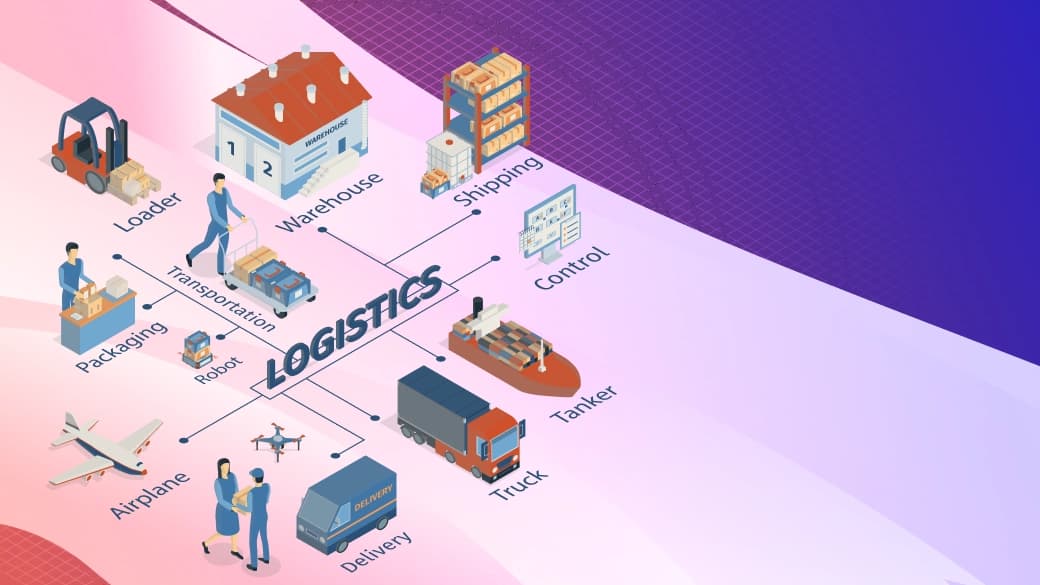B2B vs B2C Logistics, Ordering, Fulfillment and SCM

Summary
Table of Contents
B2B and B2C Defined: What Do They Really Mean?
Key Differences in B2B vs B2C Order Fulfilment
How B2B Ordering Differs from B2C
Comparing B2B vs B2C Logistics Operations
Supply Chain Management in B2B vs B2C
B2B and B2C Shipping Compared
Is Dropshipping B2B or B2C?
Conclusion: Why Understanding These Differences Matters
The approach you take should be specifically modified, whether you are supplying to consumers or corporate buyers, depending on the model’s exclusive characteristics. Together, we are going to examine the main differences and how your enterprise can maximise its performance in both models.
B2B and B2C Defined: What Do They Really Mean?
Business-to-Business (B2B) involves interactions between two or more businesses, like a wholesaler distributing products to supermarkets. They usually require bulk orders, longer delivery times, and customised terms.
Business-to-Consumer (B2C) includes selling directly to consumers, usually with smaller inventories, shorter decision times, and simpler processes.
While both of these setups may utilise eCommerce platforms, their operational requirements are more than just divergent. The trend nowadays is that companies have become more dependent on portals such as Simplisales to automate and separate both operations.
Key Differences in B2B vs B2C Order Fulfilment
1. Order Volume and Frequency
- B2C: Commonly, small orders are placed frequently by single-time or occasional shoppers.
- B2B: Regular clients, often on terms previously agreed upon, place big orders with a set of prognostics.
2. Customer Relationships
- B2C: Brief, transactional, and centred on convenience and product popularity.
- B2B: Long-lasting relationships governed by trust, dependability, and mutual objectives.
3. Customisation and Complexity
- B2C: A choice of a few materials for personalisation (e.g. colour or size); however, they are mainly standardised.
- B2B: Customised SKUs, labelling, contract pricing, volume-based offers, and unique invoicing terms.
4. Fulfilment Speed
- B2C: High demands for next-day or even same-day delivery.
- B2B: Accuracy and dependability are generally prioritised because of the speed factor, although timely fulfilment is still important.
5. Distribution Channels
- B2C: Several fulfilment centres and last-mile delivery partners.
- B2B: Centralised warehouses, which are tailored for bulk handling and freight efficiency.
Wish to enhance the performance of your order completion cycle? The Simplisales Dashboard allows wholesalers to keep track of order types, manage them, and integrate in real-time with their logistics partners.
How B2B Ordering Differs from B2C
Ordering in a B2B setting often involves:
- Quotation requests
- Approval workflows
- Purchase orders
- Multi-tier user roles
In contrast to B2C’s one-click buying process, B2B acquisitions are associated with systems that are created to factor in complexity, but without usability being a challenge. Simplisales’ no-code e-commerce website and e-commerce app feature add-ons like tiered pricing, order templates, and multi-user login for wholesale applications.
Comparing B2B vs B2C Logistics Operations
Even though logistics is essential in both scenarios, they work under different strains:
- B2C: An approach driven by last-mile delivery, live shipment tracking, and customer service.
- B2B: A mode characterised by freight efficiency, pallet handling, consolidated shipping, and on-time deliveries.
The main features of B2B logistics are adherence to the schedule, conformity to the regulations, and cost-cutting measures. Establishing a partnership with trustworthy carriers and implementing a robust system, such as Simplisales, can make these objectives realisable.
Supply Chain Management in B2B vs B2C
Supply Chain Management (SCM) includes purchasing, storing, distributing, and managing the suppliers.
- B2C SCM operates with fast-paced consumer goods, quick inventory turnover, and seasonal high demand.
- B2B SCM is characterised by lower yet bigger transactions, detailed contracts, and long-term relationships with the suppliers.
Simplisales offers both systems with advantages like multivariate warehouse options, real-time stock visibility, and customer-based product segmentation. Read more in our blog: What is Multi-Warehouse Management?
B2B and B2C Shipping Compared
- B2B Shipping: Shipping in bulk with freight or LTL, concentrated on reliability, cost per unit, and promised timelines.
- B2C Shipping: Package delivery, real-time tracking, and customer options (e.g. pickup points or evening slots).
If you’re a wholesaler carrying both out, it’s important to employ a platform that is adaptable to each customer group’s shipping logic. The Simplisales App allows you to set up your fulfilment process for both B2B and B2C buyers quickly.
Is Dropshipping B2B or B2C?
Although dropshipping is primarily identified with B2C enterprises, a growing number of B2B applications can equally be found, particularly in situations where wholesalers are penetrating new markets without the upfront inventory risk.
Whether it’s B2B or B2C, Simplisales automates dropshipping operations by connecting sellers to suppliers with integrated digital platforms. Take a look at our guide: Is Dropshipping B2B or B2C?
Conclusion: Why Understanding These Differences Matters
The future is bright for the wholesale businesses. Make it brighter with Simplisales, a simple and affordable B2B eCommerce solution for wholesalers.
Apprehending the dissimilarities between B2B and B2C in operation is not just an academic logic but a guide to coping with them and scaling them efficiently. Every choice you make in the logistics, ordering, fulfilment, and supply chain processes must relate to the type of customer you serve.
With Simplisales, you do not need to make a choice between B2B and B2C features. Our hybrid-ready platform allows wholesalers to:
- Process customer orders, whether large B2B ones or small B2C ones, through the same system.
- Develop customer-specific fulfilment flows.
- Automate repetitive tasks without involving a developer.
- Develop web and mobile applications tailored specifically for wholesale.
Related Articles
Industry news straight to your inbox
Get the latest commerce news, trends, and strategies to grow your business
Subscribe to newsletter
By submitting this form, you agree to receive promotional messages from Simplisales


